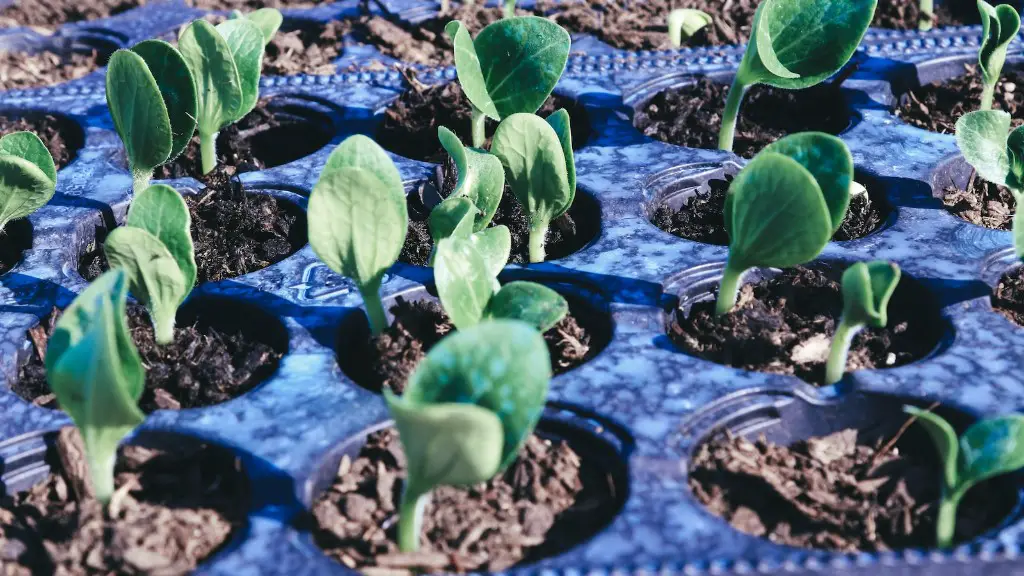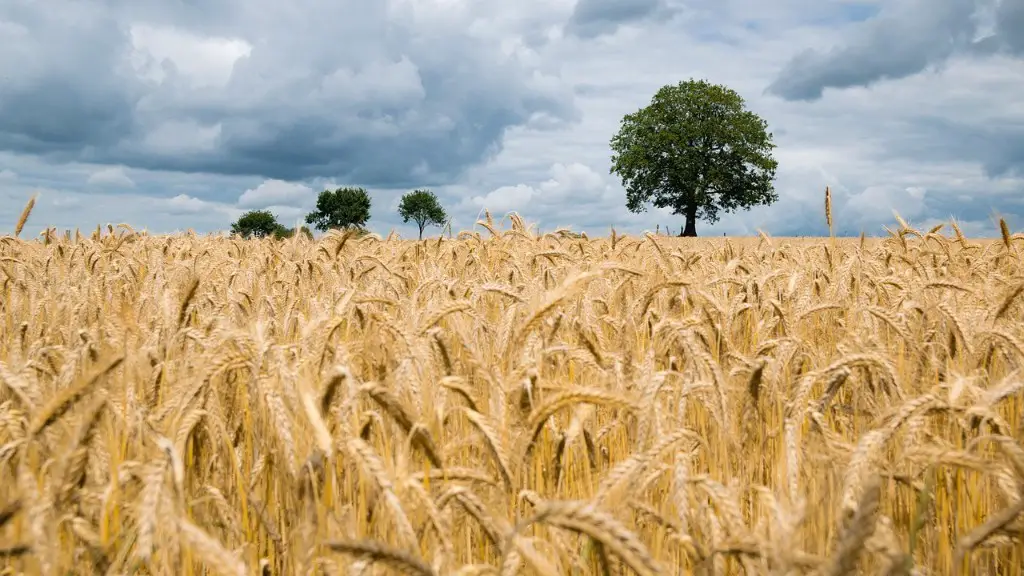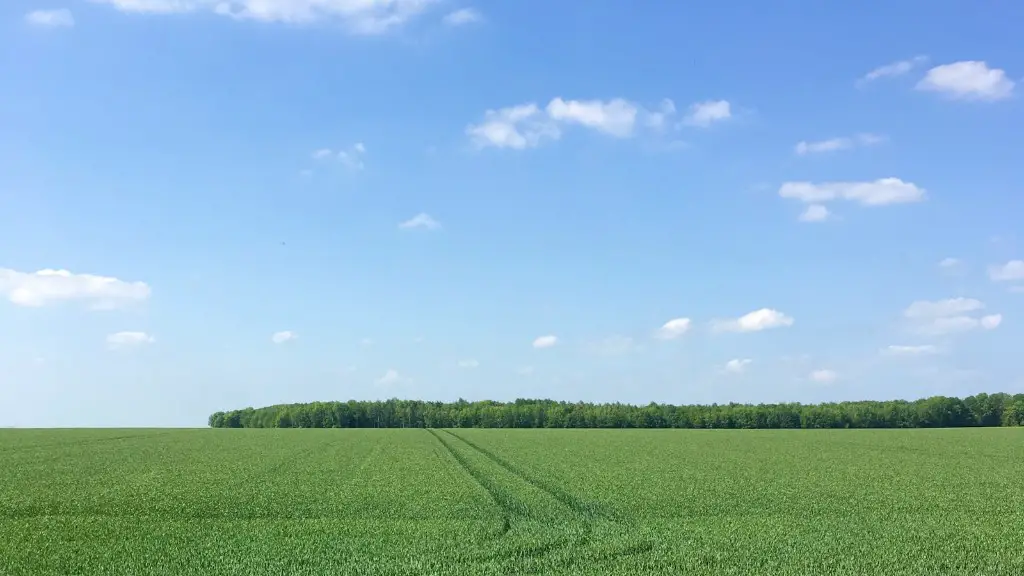The use of DNA technology in agriculture has revolutionized the way we grow and breed crops. By understanding the genetic makeup of plants, we can develop strains that are resistant to disease, pests, and drought. This has led to more productive and bountiful harvests, which in turn has helped to feed the world’s growing population.
Along these lines, a career that combines DNA technology in agriculture would probably entail working in a lab to help develop new ways to increase crop yields, or to create new strains of plants that are resistant to pests or diseases.
Which career combines DNA technology in forensics?
DNA analysts play a vital role in the criminal justice system by developing DNA profiles from evidence collected at crime scenes. These profiles can be used to exonerate or implicate someone in a crime. DNA analysts typically spend their days in a laboratory, working to develop accurate and reliable DNA profiles.
Recombinant DNA technology has had a significant impact on agriculture, improving plant growth and increasing resistance to pests and viruses. This technology inserted resistant genes into plant genomes, making them more resistant to caterpillars, pests, and viruses. This increased the efficiency of nitrogen fixation and helped improve crop yields.
What are some careers in agriculture that relate to genetics
Plant breeding is a field of science that deals with the improvement of plants for various purposes. Plant breeders use a variety of techniques to create new plant varieties that are more disease-resistant, have higher yields, or are more tolerant to environmental stressors.
There is a growing demand for plant breeding jobs in the agriculture industry, as the world population continues to grow and the need for food production increases. There are many different career paths that plant breeders can take, from working in research and development to managing breeding programs.
If you are interested in a career in plant breeding, there are many great opportunities available.
The use of transgenic plants for the production of vaccines and other therapeutic proteins has many advantages. Transgenic plants can be produced with improved qualities such as insect and drought resistance and nutritional enrichment. Gene therapy in diseases like cancer, SCID etc. can also be achieved using transgenic plants.
Which career combines DNA technology and agriculture Pharmaceuticals paternity testing?
Agricultural biotechnology is the career or profession that combines DNA technology and agriculture. Agricultural biotechnology can be used to develop new crops with desirable traits, such as resistance to pests or tolerance to herbicides. It can also be used to produce genetically modified animals for food or livestock.
Forensic biologists are responsible for examining evidence for the presence of body fluids and conducting DNA analysis. This discipline is important in criminal investigations, as it can help to identify suspects and victims. Forensic biologists use a variety of techniques to examine evidence, including microscopy, chromatography, and DNA sequencing.
Which career combines DNA technology and medicine?
Medical genetics is a branch of medicine that deals with the diagnosis and management of hereditary disorders. It also involves the counseling of patients and families who have genetic disorders or are at risk of developing one.
A career in medical genetics combines DNA technology and medicine to help people with hereditary disorders. Clinical geneticists, genetics counselors and clinical laboratory geneticists are some of the job titles involved in this field.
Genetic engineering has had a profound impact on medicine, research, industry, and agriculture. By manipulating the genes of plants, animals, and microorganisms, scientists have been able to create a variety of new drugs and hormones with a wide range of applications. In medicine, for example, genetic engineering has been used to create new treatments for cancer, AIDS, and other diseases. In research, it has been used to develop new methods for studying genes and disease. In industry, it has been used to create new enzymes and other chemicals for use in manufacturing. And in agriculture, it has been used to create new crops and livestock with superior characteristics.
Is genetic engineering in agriculture good
The possible benefits of genetic engineering are vast and varied. More nutritious and tastier food is one potential benefit, as are disease- and drought-resistant plants that require fewer environmental resources. This technology has the potential to revolutionize agriculture and food production, making it more efficient and sustainable. With proper regulation, genetic engineering could be a powerful tool for mitigating some of the most pressing issues facing the world today.
Genetic engineering has tremendous potential to help farmers increase crop production in a number of ways. For example, GE crops can be designed to be more resistant to pests and diseases, which can reduce crop loss and increase yields. Additionally, GE crops can be engineered to grow in harsher climates and soils, making them more adaptable and productive. Moreover, GE crops can be modified to have higher nutritional value, which can improve human health. Finally, GE crops can be used to produce pharmaceuticals and other valuable compounds, providing farmers with another source of income.
Is genetic engineering used in agriculture?
Genetic engineering, including gene editing, can have numerous benefits. For example, it can be used to create faster and more precise breeding, higher crop yields, development of more nutritious food, and decreased need for herbicides and pesticides. Additionally, genetic engineering can help to create new and beneficial traits in plants and animals, and to improve existing traits.
DNA analysts are responsible for the analysis of DNA samples taken from crime scenes. These samples are then used to identify potential suspects or victims. DNA analysts typically have a bachelor’s degree in forensic studies, criminalistics, biology or a related field. DNA analysts aspiring to work in crime labs for the Federal Bureau of Labor Statistics are required to have at least a bachelor’s degree in forensic science, genetics or molecular biology.
What type of engineer works with DNA and genes
A genetic engineer is a type of scientific professional who specializes in working with genetics in animals, plants and humans. Genetic engineers might work in a research lab creating new genetic variants of plants that produce food or they might work as a genetic counselor for humans with rare genetic diseases.
DNA analysts are typically highly educated, with a Bachelor’s degree in the sciences. They have often taken courses in genetics, molecular biology, and biochemistry, and are familiar with the applications and equipment of forensic science.
What is agriculture geneticist?
Agricultural genetics is the application of genetics to agriculture. It is the study of the effects of genetic variation and selection used to propagate valuable heritable trait combinations in crop plants and farm animals.
Recombinant DNA technology, or genetic engineering, is the process of adding genetic information from one organism to another. This can be done to bacteria, plants, and animals, and can result in the addition of new characteristics to the organism. This process has been used for centuries to improve crops and create new breeds of animals, but only recently has it been possible to modify the DNA of individual cells. This has opened up new possibilities for medical and industrial applications of recombinant DNA technology.
Does agriculture use DNA fingerprinting
A fingerprint could be taken to show whether the seed which the farmer planted was in fact the variety that was chosen DNA fingerprinting may also be used in the future to identify disease infection in crops. Each disease-causing agent, such as a fungus, bacteria or virus, has a unique DNA fingerprint. This may be extremely useful in the future to farmers in order to quickly and easily determine what crop disease is present and thus take steps to mitigate it.
A medical geneticist is a scientist who has special training in the study of genes and heredity. A medical geneticist is a doctor who specializes in diagnosing and treating genetic disorders or conditions.
Final Words
The career that combines DNA technology in agriculture is agricultural scientist.
The field of agricultural biotechnology combines DNA technology with the study of plants and animals to create new and improved ways to produce food. Agricultural biotechnology is a growing field with many opportunities for those with a background in DNA technology.




